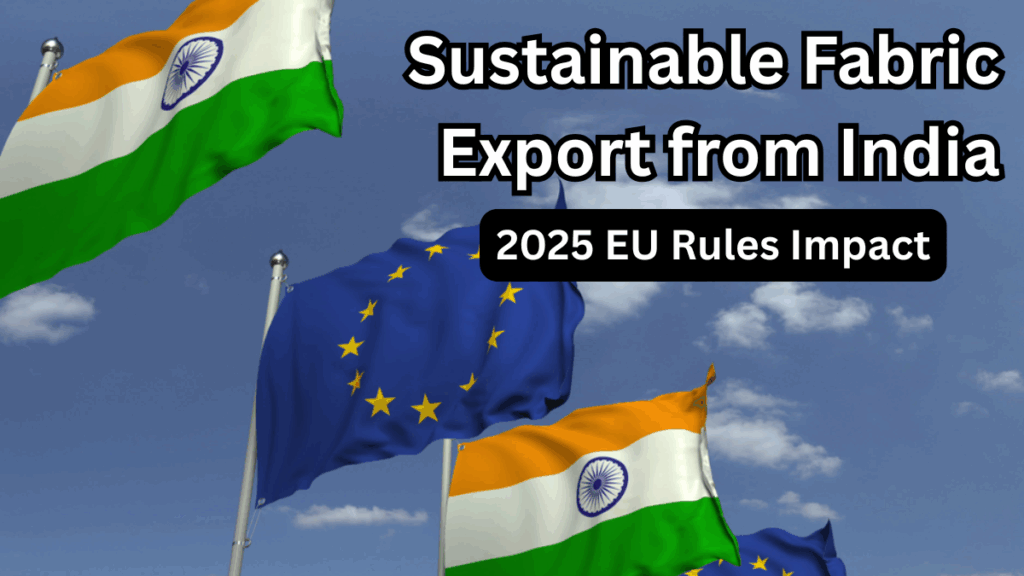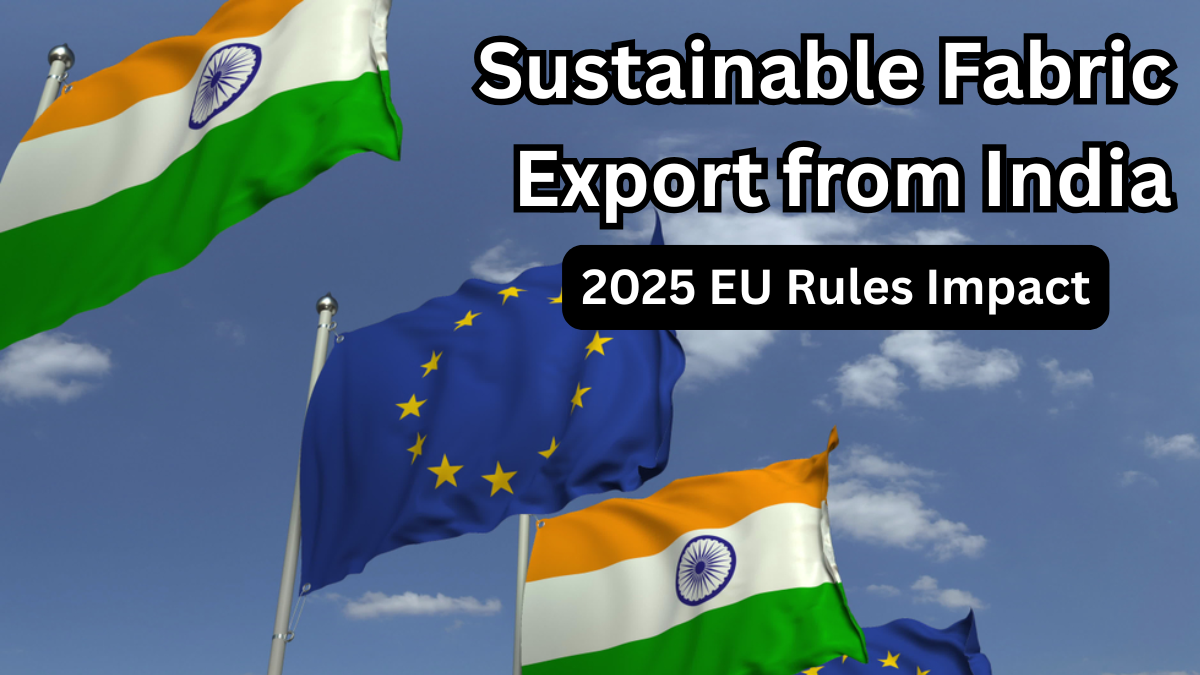India has long been a global leader in textile production, renowned for its rich heritage and diverse fabrics. However, the evolving international trade landscape, especially within the European Union, is bringing fresh challenges and opportunities for Indian exporters. In 2025, EU regulations on sustainability and compliance will play a pivotal role in shaping Sustainable Fabric Export from India.

Understanding EU Compliance in Textile Trade
The European Union has been stringent in implementing sustainability standards for textile imports. For Indian exporters, aligning with these rules is no longer optional—it is essential to maintain market access.
Key aspects of EU compliance include:
-
Eco-friendly raw materials: Fabrics must be sourced using sustainable processes, minimizing environmental impact.
-
Chemical restrictions: Certain dyes and chemicals are banned under EU standards.
-
Traceability: Full transparency of the supply chain is required to ensure ethical production practices.
-
Carbon footprint reporting: Companies must disclose environmental impact metrics for their fabrics.
| Compliance Area | Requirement | Indian Exporters’ Focus |
|---|---|---|
| Raw Materials | Organic fibers, sustainable sourcing | Shift to certified organic cotton & bamboo |
| Chemicals & Dyes | Restricted substances & non-toxic alternatives | Adopt EU-approved dyes |
| Supply Chain Traceability | Full documentation from farm to fabric | Implement digital tracking & certifications |
| Carbon Footprint | Emissions reporting & reduction targets | Energy-efficient production & eco-packaging |
Opportunities for Sustainable Fabric Export from India
While compliance may seem challenging, it opens doors for growth and global recognition:
-
Premium market access: European brands are willing to pay more for verified sustainable fabrics.
-
Brand reputation: “Made in India” fabrics with eco-certification gain stronger international trust.
-
Innovation in textiles: Investment in organic and recycled fabrics drives technological advancements.
-
Diversification: Expands product lines, such as organic cotton, hemp, and bamboo-based fabrics.
Challenges Faced by Indian Exporters
Despite opportunities, Indian exporters must navigate:
-
High certification costs: Eco-labels and audits can be expensive for smaller businesses.
-
Technical knowledge gap: Understanding EU regulations requires dedicated resources.
-
Supply chain fragmentation: Many small suppliers may struggle with traceability requirements.
-
Market competition: Other countries like Bangladesh and Vietnam are also investing in sustainable textiles.
Strategies to Ensure EU Compliance
Indian exporters can adopt the following strategies:
-
Invest in certification: Obtain GOTS (Global Organic Textile Standard) and OEKO-TEX certifications.
-
Upgrade production processes: Reduce chemical use, adopt renewable energy, and minimize water waste.
-
Digital supply chain solutions: Track every step from farm to fabric to meet EU traceability rules.
-
Collaborate with EU partners: Work closely with European buyers to align on sustainability expectations.
| Strategy | Benefit |
|---|---|
| GOTS & OEKO-TEX Certifications | Enhances credibility & market access |
| Renewable Energy Adoption | Reduces carbon footprint |
| Digital Supply Chain Tracking | Ensures traceability & transparency |
| Partnership with EU Buyers | Builds trust & facilitates compliance |
The Road Ahead
With the EU emphasizing sustainable imports, Indian exporters who embrace Sustainable Fabric Export practices will enjoy long-term benefits. Proactive adoption of EU compliance rules not only secures market access but also positions India as a global leader in sustainable textiles.
FAQs
1. What is Sustainable Fabric Export?
Sustainable Fabric Export refers to the international trade of fabrics produced using eco-friendly processes, organic raw materials, and ethical production practices.
2. Why is EU compliance important for Indian exporters?
EU compliance ensures that fabrics meet environmental, chemical, and ethical standards, allowing Indian businesses to access premium European markets.
3. Which certifications are essential for sustainable textile exports to the EU?
Key certifications include GOTS (Global Organic Textile Standard), OEKO-TEX, and Fair Trade certifications, which demonstrate eco-friendly and ethical practices.
4. How can small Indian exporters adapt to EU sustainability rules?
Small exporters can collaborate with larger partners, adopt digital supply chain solutions, and gradually implement eco-friendly practices to meet EU standards.
Click here to learn more
